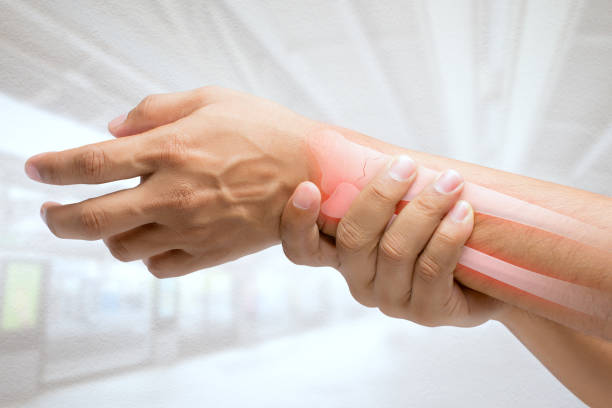Osteoporosis and Family History: Unraveling the Key Connections
Introduction
When it comes to understanding the risk factors for various health conditions, including osteoporosis, family history often plays a crucial role. As someone who has personally explored the impact of family history on osteoporosis, I am excited to share my insights and suggestions with you. In this article, we will delve into the connection between family history and osteoporosis, exploring how genetic factors can influence the development of this condition. By understanding the role of family history, we can gain valuable knowledge and take proactive steps in managing it effectively.
1. What is Osteoporosis?
Osteoporosis is a condition characterized by reduced bone density and an increased risk of fractures. It occurs when the body loses bone mass faster than it can replace it, resulting in weakened and fragile bones. It is often referred to as a “silent disease” because it progresses without noticeable symptoms until a fracture occurs.
2. The Influence of Genetic Factors
While lifestyle factors such as diet, physical activity, and hormonal changes are known to contribute to osteoporosis, family history is another crucial aspect. Research suggests that genetic factors play a significant role in determining an individual’s susceptibility to osteoporosis. If someone in your family has been diagnosed with osteoporosis, you may have an increased risk of developing the condition yourself.
3. Genetic Markers and Osteoporosis
Scientists have identified several genetic markers associated with osteoporosis. These markers are specific gene variations that can influence bone health. The presence of certain genetic markers may indicate a higher predisposition to developing osteoporosis. However, it is important to note that having these markers does not guarantee the development of the condition. They merely indicate an increased risk.
4. Familial Patterns and Risk Assessment
When considering the impact of family history on osteoporosis, it is essential to examine familial patterns. If multiple close relatives, such as parents or siblings, have been diagnosed with osteoporosis, the risk for other family members increases. This pattern suggests a potential genetic component in the development of the condition.
5. Lifestyle Factors and Family History
While family history can be a strong indicator of osteoporosis risk, it is crucial to recognize that lifestyle factors also contribute significantly. A healthy lifestyle that includes a balanced diet rich in calcium and vitamin D, regular exercise, avoidance of smoking and excessive alcohol consumption, and appropriate hormonal balance can help reduce the risk of developing osteoporosis, even with a family history of the condition.
6. The Importance of Bone Density Testing
If you have a family history of osteoporosis or other risk factors, it is advisable to undergo bone density testing. This non-invasive test measures bone mineral density and assesses the strength and health of your bones. Bone density testing can identify osteoporosis in its early stages and help guide preventive measures and treatment
plans.
7. Early Detection and Prevention
Early detection is key to effectively managing osteoporosis. If you have a family history of the condition, it is crucial to be proactive and take preventive measures. Regular physical activity, a balanced diet, and lifestyle modifications tailored to bone health can help minimize the risk of developing osteoporosis.
8. Medical Intervention and Treatment Options
If you have been diagnosed with osteoporosis, medical intervention may be necessary. Treatment options can include medications to strengthen bones, hormone therapy, and lifestyle modifications. Consulting with a healthcare professional specializing in bone health can help you develop an individualized treatment plan based on your family history, risk factors, and overall health.
9. Importance of Support and Education
Living with osteoporosis can be challenging, but understanding your family background can provide a sense of empowerment. Support groups, educational resources, and talking to others who have experienced similar challenges can be immensely helpful in navigating the journey of managing the disease
Conclusion
In conclusion, genealogy does play a role in osteoporosis. Genetic factors and familial patterns can influence an individual’s risk of developing the condition. However, lifestyle factors such as diet, exercise, and hormonal balance also play a significant role. By recognizing the impact of family history and implementing preventive measures, individuals can take control of their bone health and reduce the risk of osteoporosis.
FAQs
Q1: Can osteoporosis be inherited?
A1: While osteoporosis itself is not directly inherited, certain genetic factors can increase the risk of developing the condition.
Q2: If I have a family history of osteoporosis, should I be concerned?
A2: Having a history of osteoporosis does increase your risk, but it does not mean you will develop the condition. Taking preventive measures and maintaining a healthy lifestyle can help reduce the risk.
Q3: Are men affected by family history in osteoporosis?
A3: Yes, men can be affected by family history in osteoporosis. Genetic factors can impact bone health in both men and women.
Q4: Can lifestyle modifications reduce the impact of family history on osteoporosis?
A4: Yes, adopting a healthy lifestyle that includes a balanced diet, regular exercise, and other preventive measures can help reduce the impact of your history on osteoporosis.
Q5: Should I consult a healthcare professional if I have a family history of osteoporosis?
A5: It is advisable to consult a healthcare professional, especially if your family has a history of osteoporosis. They can assess your individual risk factors and recommend appropriate preventive measures or treatment options.




